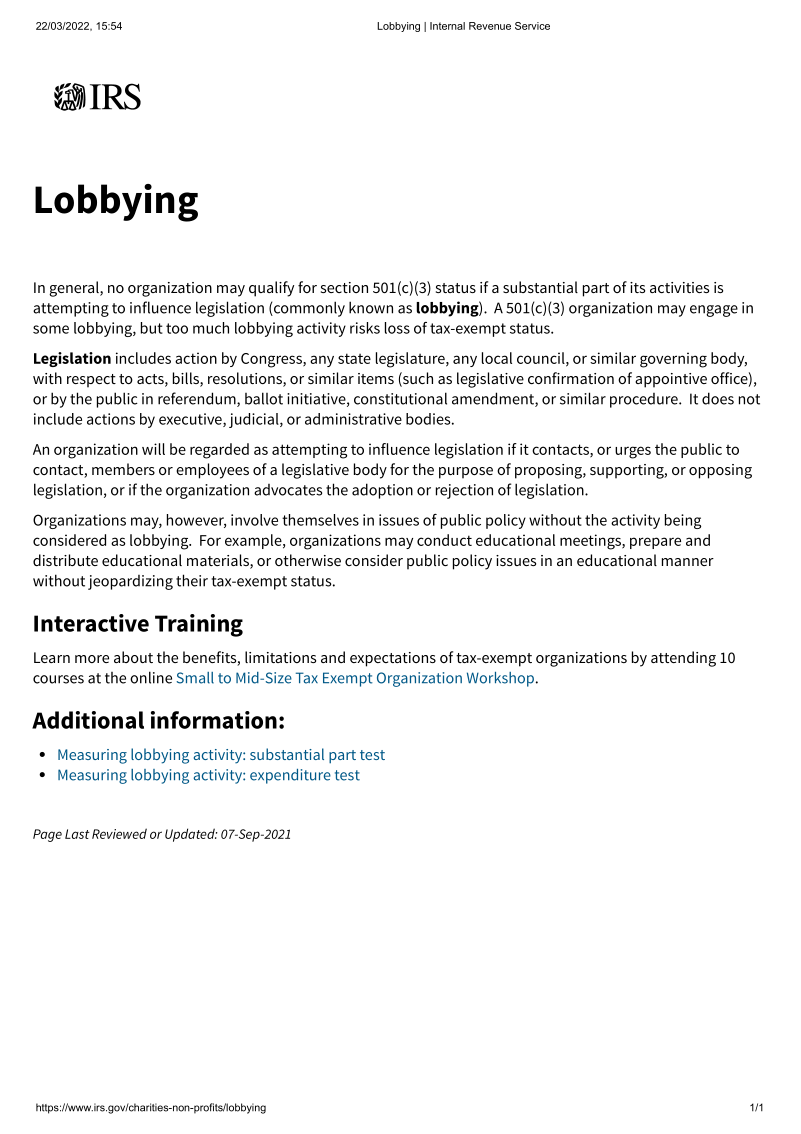IRS Website on limits to lobbying a NPO can engage in.
- Type
- Website
- Source
- Internal Revenue Service Non-LDS
- Hearsay
- Direct
- Reference
"Lobbying," Internal Revenue Service website, September 7, 2021, accessed March 22, 2022
- Scribe/Publisher
- Internal Revenue Service
- People
- Internal Revenue Service
- Audience
- Reading Public
- Transcription
In general, no organization may qualify for section 501(c)(3) status if a substantial part of its activities is attempting to influence legislation (commonly known as lobbying). A 501(c)(3) organization may engage in some lobbying, but too much lobbying activity risks loss of tax-exempt status.
Legislation includes action by Congress, any state legislature, any local council, or similar governing body, with respect to acts, bills, resolutions, or similar items (such as legislative confirmation of appointive office), or by the public in referendum, ballot initiative, constitutional amendment, or similar procedure. It does not include actions by executive, judicial, or administrative bodies.
An organization will be regarded as attempting to influence legislation if it contacts, or urges the public to contact, members or employees of a legislative body for the purpose of proposing, supporting, or opposing legislation, or if the organization advocates the adoption or rejection of legislation.
Organizations may, however, involve themselves in issues of public policy without the activity being considered as lobbying. For example, organizations may conduct educational meetings, prepare and distribute educational materials, or otherwise consider public policy issues in an educational manner without jeopardizing their tax-exempt status.
- Source Link
- http://web.archive.org/web/20220309052619/https://www.irs.gov/charities-non-profits/lobbying
- Citations in Mormonr Qnas
The B. H. Roberts Foundation is not owned by, operated by, or affiliated with the Church of Jesus Christ of Latter-day Saints.

